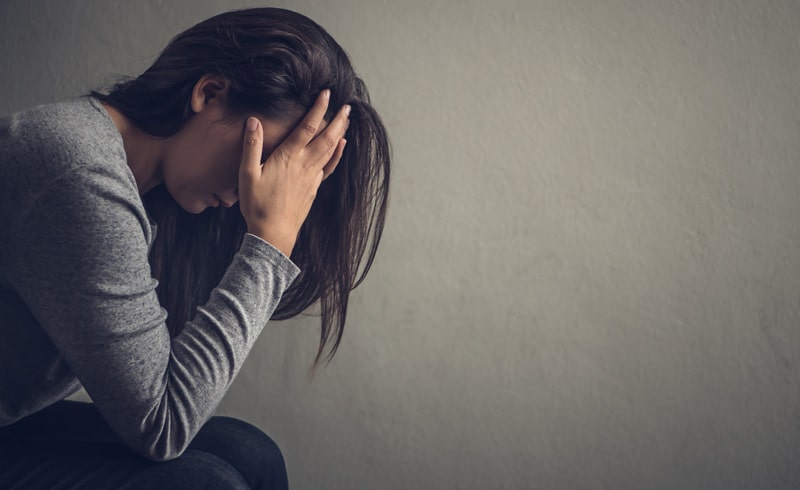Let’s begin with the history of cocaine. People in South America have chewed or ingested coca leaves (the source of cocaine) for thousands of years. No doubt, they did this for the stimulant effects.

Then, in the early 1900s, the purified chemical was separated from the plant, thereby becoming the main active ingredient in many elixirs and tonics meant to treat an assortment of different illnesses. Unfortunately, cocaine is a very addictive stimulant. Studies have found that cocaine is second only to heroin in the ranking of most addictive drugs.
At Miracles Recovery Center in Port Saint Lucie, FL, our mission is to help people suffering from drug abuse like cocaine addiction have access to optimal treatment and resources to break the dangerous cycle of addiction and achieve long-term sobriety.
Table of Contents
- 1 What Causes Addiction To Cocaine?
- 2 What Are Some Effects Of Cocaine Use?
- 3 Signs Of Cocaine Addiction
- 4 Quitting Cocaine Abuse
- 5 Treatment For Cocaine Addiction
- 6 Therapies And Counseling
- 6.1 Types Of Behavioral Therapies
- 6.2 Cognitive-Behavioral Therapy (CBT)
- 6.3 Dialectical Behavioral Therapy (DBT)
- 6.4 Contingency Management (CM)
- 6.5 Types Of Psychotherapy (Talk Therapy)
- 6.6 Group Therapy
- 6.7 Individual Therapy
- 6.8 Medications
- 6.9 Types Of Alternative Therapies
- 6.10 Holistic therapy
- 6.11 Alternative Therapy
- 7 Relapse Warning Signs
- 8 Getting Help For Cocaine Addiction At Miracles Recovery Center In Port Saint Lucie
- 9 References:
What Causes Addiction To Cocaine?
Cocaine addiction occurs because cocaine affects the workings of your brain. It increases a natural chemical messenger (also called a neurotransmitter) in the circuitry of your brain. That messenger is dopamine, and it is associated with the control of movement and the reward system in your brain. In a normally functioning brain, dopamine is released by a brain cell (neuron) to carry the message to another brain cell.
Usually, the dopamine is recycled back into the cell that released it. This then shuts off the messaging between the nerve cells. But when cocaine is brought in, it prevents the dopamine from being recycled.
The result of this is that large amounts of dopamine build up in the spaces between the cells, halting their communication. This surge of dopamine in the brain’s reward circuit reinforces drug-using behavior.
Eventually…
- The brain’s reward system adapts to the extra dopamine
- Causing it to lose its sensitivity to it
- Resulting in the person needing stronger and/or higher doses to:
- Get the same effect they felt when they first started using or to ease the withdrawal symptoms
This is known as building tolerance, and you are now addicted.
Who Has A Greater Risk For Cocaine Addiction?
Anyone who suffers from cocaine dependence is at risk for addiction. But some things increase the risk, such as:
- An addiction to alcohol or other drugs
- A family history of dependence on cocaine or other drugs
Mental illness, such as depression
What Are Some Effects Of Cocaine Use?
Cocaine use varies from occasional to compulsive use and different levels in between. But whatever level of use is reached and whatever method of taking it is used, there is a potential to cause the absorption of toxic amounts of cocaine. The result can be heart attacks, strokes, or seizures. These can cause sudden death in a seemingly healthy person.
Short-Term Effects
- Extreme happiness
- Irritability or anger
- Paranoia
- Decreased appetite
- Intense sensitivity to touch, sound, and light
Long-Term Effects
- Loss of sense of smell
- Frequent nosebleeds
- Problems swallowing
- Rips in the intestines
- Higher risk for stroke and seizures
- Difficulty paying attention
- Difficulty with memory
- Bleeding in the brain
Other Cocaine-Associated Risks
If all the short- and long-term risks weren’t enough to consider, consider these other risks linked to cocaine use.
A lack of good judgment while using can damage your ability to make good choices. Which can lead to risky sexual behavior. This includes:
- Trading sex for drugs
- Sharing needles
These behaviors increase the risk of becoming infected with HIV and HCV. HIV and hepatitis C (HCV) both affect the liver. Unfortunately, there aren’t any vaccines to prevent infection from HIV or HCV. When studies were done on the patterns of HIV infection and progress, it was discovered that cocaine use speeds up the HIV infection. While it does that, it also obstructs immune cell function and promotes the spread of HIV.
Most importantly, cocaine addiction causes damaging effects on different types of cells in the brain and spinal cord. Moreover, it has been found that infection with HIV increases the risk of co-infection with HCV, which harms the liver. Liver complications are common, and many co-infected people die of cancer and chronic liver disease.
Signs Of Cocaine Addiction
If someone you care about (or you) shows these signs, you should consider seeing a medical professional for an evaluation. They include:
- An inability to stop or even reduce using
- Symptoms of withdrawal when not using
- Motivated to keep using despite health complications
- Spending large amounts of time and money procure cocaine
- Runny nose or nosebleeds (from snorting powder cocaine)
- Irritability and paranoia
- Psychosis and hallucinations
- Nagging cough (from smoking crack)
- A harmful effect on relationships, employment, and quality of life
Quitting Cocaine Abuse
If you want to stop using cocaine, then good for you. But if you plan to go through detox on your own, you need to rethink that.
Cocaine withdrawal doesn’t usually have visible symptoms like the shaking and vomiting associated with heroin and alcohol withdrawal, but it might cause these symptoms:
- Fatigue
- Appetite increase
- Slowed thinking
- Sleep problems
- Depression
- Suspicion and paranoia
- Agitation
- Intense cravings for cocaine
Cocaine withdrawal is usually safe, and there aren’t any approved medications to help ease the effects. However, individuals who have severe cocaine withdrawal symptoms may need a detox center or hospitalization to help them get through the detox process. People who detox at home are taking a chance because the symptoms may become severe and result in relapse, extreme depression, psychosis, or suicidal thoughts.
Treatment For Cocaine Addiction
After going through detox and your body is cleansed of toxins, it’s time for treatment to increase your chances of a successful long-term recovery. Most cocaine addiction treatment facilities provide several levels of care, so you may enter at your appropriate level and continue as long as necessary. Typical programs offered include:
Medical Detox

Medical detox, also known as detoxification, is the process of letting your body rid itself of a drug. The purpose of detox is to manage the withdrawal symptoms that occur when you stop using the drug. In the case of cocaine, withdrawal symptoms can last for days and even months for people who have been long-term heavy users.
Partial Hospitalization Program (PHP)
A Partial Hospitalization Program (PHP) is the same as a residential program except that you can go to your home at night and on the weekends. The days are fully structured and supervised, so you are not distracted by the triggers and stress of life outside the facility. You will attend counseling, therapies, and activities to help learn healthy behaviors and prevent relapse. You will typically attend 5 full days a week. The duration depends on what you need.
Intensive Outpatient Treatment (IOP)
An Intensive Outpatient Program (IOP) has a lower time commitment than a PHP. You still receive the structured care and counseling as a PHP, but you will attend the facility fewer days (or nights) per week and fewer hours per day. IOPs are good for people who:
- Addiction was not severe or long-term
- Have a supportive and helpful family and work network
- Are not able to attend a PHP due to family or work obligations
- Have already completed the PHP and are stepping down to an IOP to continue treatment
Outpatient Treatment Program (OP)
An outpatient program is similar to the IOP but with less time commitment. OPs are most appropriate for continuing treatment after completing one of the higher levels of care. However, insurance companies and employers are more willing to encourage an outpatient program. The decision should be between you and a medical professional.
Therapies And Counseling
Types Of Behavioral Therapies
Behavioral therapy has proved to be an effective tool in the treatment of cocaine addiction.
Treatments focused on behavior are often used with medications and can be used in residential or outpatient programs. Some common behavioral therapies are:
Cognitive-Behavioral Therapy (CBT)
Cognitive-Behavioral Therapy (CBT) is a short-term, goal-oriented therapy that focuses on long-term abstinence and relapse prevention. It is a form of talk therapy that helps people learn how to recognize and change their destructive thought patterns that have adversely influenced their behavior.
Dialectical Behavioral Therapy (DBT)
DBT is a behavioral therapy similar to CBT, but it is more focused on the management of emotions and the effect on behavior.
Contingency Management (CM)
This treatment option uses motivational encouragement in the form of vouchers that can be earned for clean drug tests, therapy attendance, etc. The vouchers maybe a gym membership or, dinner at a healthy restaurant, or anything that encourages healthy choices.
Types Of Psychotherapy (Talk Therapy)
Behavioral health therapy is a type of treatment that has proved to be an effective treatment for cocaine addiction, substance use disorder, and other drug addiction cases.
Treatments focused on behavior are often used with medications and can be used in residential or outpatient programs. Some common behavioral therapies are:
Group Therapy
A group therapy session includes one or more therapists working with a group of individuals at the same time. The natural tendency of humans to gather together makes group therapy a powerful form of therapy. It reduces the feelings of isolation many addicts feel, and it allows members to see the recoveries of others, share ideas, and hold each other accountable.
Individual Therapy
Individual therapy is a one-on-one confidential session with the individual’s counselor. It is a method of helping an addict understand their reasons for using and their feelings about getting sober. Many people are uncomfortable speaking in front of others, and individual therapy is an excellent way to start.
Medications
As mentioned, no specific medications are approved to treat cocaine use disorder or addiction. However, other medications may be used, such as antidepressants, for the symptoms of depression from withdrawal. Besides the symptoms of withdrawal, there may be an underlying, undiagnosed mental health problems that is uncovered during treatment. This particular condition, substance abuse, and a mental illness is called a dual diagnosis. This is a common occurrence with addiction and simultaneously needs special treatment for both conditions.
Types Of Alternative Therapies

Alternative and holistic therapies are also offered in many addiction treatment centers:
Holistic therapy
Holistic rehab aims to treat the whole person, body, mind, and spirit. The belief is that if any one of these components is out of balance, the person is out of balance. The goal is to promote the mind/body connection. Some examples of holistic therapy are:
- Yoga
- Meditation
- Breathing and relaxation techniques
- Acupuncture and massage
Alternative Therapy
Alternative therapies are a method to help deal with drug cravings that can come out of nowhere. They include:
- Exercise therapy
- Art Therapy
- Biofeedback therapy
- Equine therapy
Relapse Warning Signs
Anyone who completes addiction treatment should keep in mind the warning signs of cocaine relapse. And anyone who has a loved one or family members in treatment or out should also be aware. Hopefully, this might prevent one from happening. Signs include:
- Failing to continue with aftercare programs such as counseling, support groups, or 12-step meetings.
- Being over-stressed and not dealing with it using healthy coping skills learned in therapy.
- Taking part in other compulsive behaviors like gambling, overeating, overworking, or overexercising.
- Going to drug-using environments or seeing drug-using friends.
- Feeling a loss of support from friends and family.
- Returning to negative thoughts.
- Isolating from other people and hiding emotions.
- Glamorizing your past drug use.
- Lying and engaging in secretive behavior.
- Believing you can control your cocaine use now.
- Looking for an opportunity to relapse

Getting Help For Cocaine Addiction At Miracles Recovery Center In Port Saint Lucie
You can get help for cocaine addiction right in South Florida. Miracles Recovery Center can provide you with a safe place to face your problems and get back on the right foot. We have several levels of care and many treatment therapies so that we can design a program specifically for you.
Our staff is compassionate, caring, and professional. If you need help or if a loved one needs help, contact us now. We are available 24 hours a day.
References:
- www.drugfreeworld.org/drugfacts/cocaine/why-is-cocaine-so-highly-addictive.html
- www.drugpolicy.org
- www.sciencedirect.com/topics/medicine-and-dentistry/cocaine-dependence
- www.projectknow.com/cocaine/addiction/

